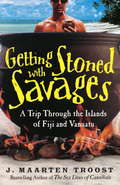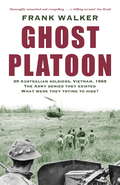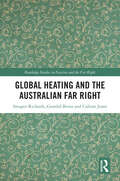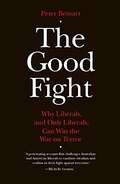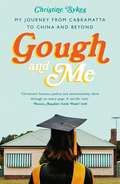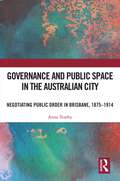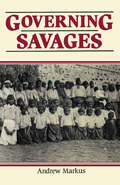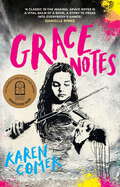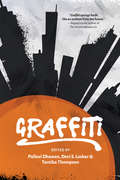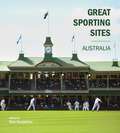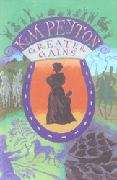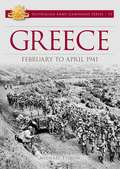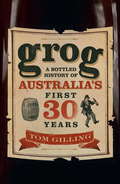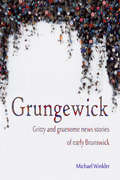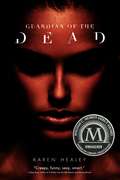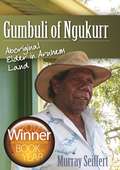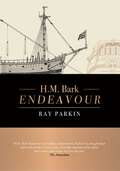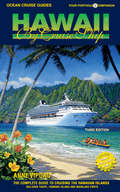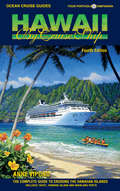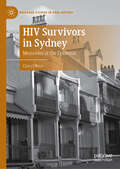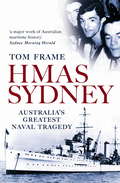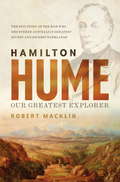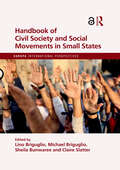- Table View
- List View
Getting Stoned with Savages: A Trip Through the Islands of Fiji and Vanuatu
by J. Maarten TroostWith The Sex Lives of Cannibals, Maarten Troost established himself as one of the most engaging and original travel writers around. Getting Stoned with Savages again reveals his wry wit and infectious joy of discovery in a side-splittingly funny account of life in the farthest reaches of the world. After two grueling years on the island of Tarawa, battling feral dogs, machete-wielding neighbors, and a lack of beer on a daily basis, Maarten Troost was in no hurry to return to the South Pacific. But as time went on, he realized he felt remarkably out of place among the trappings of twenty-first-century America. When he found himself holding down a job--one that might possibly lead to a career--he knew it was time for him and his wife, Sylvia, to repack their bags and set off for parts unknown. Getting Stoned with Savages tells the hilarious story of Troost's time on Vanuatu--a rugged cluster of islands where the natives gorge themselves on kava and are still known to "eat the man." Falling into one amusing misadventure after another, Troost struggles against typhoons, earthquakes, and giant centipedes and soon finds himself swept up in the laid-back, clothing-optional lifestyle of the islanders. When Sylvia gets pregnant, they decamp for slightly-more-civilized Fiji, a fallen paradise where the local chiefs can be found watching rugby in the house next door. And as they contend with new parenthood in a country rife with prostitutes and government coups, their son begins to take quite naturally to island living--in complete contrast to his dad.
Ghost Platoon
by Frank Walker'thoroughly researched and compelling . . . a chilling account' - The Sun HeraldAn eye-opening account of Australian combat history, untold . . . until now.In 1969 a ragtag unit of 39 men were thrown together at Nui Dat, Vietnam. It was so slapdash a group it didn't even have an officer or sergeant in charge. A rugged ex-Royal Marine stepped forward to take the lead. Jim Riddle was only an acting corporal but he knew enough of war to keep these young diggers alive.When the platoon was involved in a high-risk ambush Riddle proved his leadership skills, bringing his men through unscathed and leaving the battlefield littered with enemy bodies.Despite their success, immediately afterwards the platoon was disbanded. According to the army they'd never existed ? theirs was a ghost platoon.Frank Walker details what happened at that ambush and why the army buried their existence, and the secrets that went with it. His findings are a shocking indictment of the long-term effects of war. The men of the platoon ? who'd fought so hard for their country ? had to fight again to reveal the truth. But the price they all paid was far too high.Ghost Platoon is a gripping story of the soldiers who should never be forgotten . . . or denied.
Global Heating and the Australian Far Right (Routledge Studies in Fascism and the Far Right)
by Imogen Richards Gearóid Brinn Callum JonesGlobal Heating and the Australian Far Right examines the environmental politics of far-right actors and movements in Australia, exploring their broader political context and responses to climate change. The book traces the development of far-right pseudo-environmentalism and territorial politics, from colonial genocide and Australian nationalism to extreme-right political violence. Through a critical analysis of news and social media, it reveals how denialist and resignatory attitudes towards climate change operate alongside extreme right accelerationism, in a wider Australian political context characterised by reactionary fossil fuel politics and neoliberal New Right climate change agendas. The authors scrutinise the manipulation of environmental politics by contemporary Australian far- and extreme-right actors in cross-national online media. They also assess the political-ideological context of the contemporary far right, addressing intergovernmental approaches to security threats connected to the far right and climate change, and the emergence of radical environmentalist traditions in ‘New Catastrophism’ literature. The conclusion synthesises key insights, analysing the mainstreaming of ethnonationalist and authoritarian responses to global heating, and potential future trajectories of far-right movements exploiting the climate crisis. It also emphasises the necessity for radical political alternatives to counter the far right’s exploitation of climate change. This book will be of interest to researchers of climate change, the far right, neoliberal capitalism, extremism and Australian politics.
Global Heating and the Australian Far Right (Routledge Studies in Fascism and the Far Right)
by Imogen Richards Gearóid Brinn Callum JonesGlobal Heating and the Australian Far Right examines the environmental politics of far-right actors and movements in Australia, exploring their broader political context and responses to climate change.The book traces the development of far-right pseudo-environmentalism and territorial politics, from colonial genocide and Australian nationalism to extreme-right political violence. Through a critical analysis of news and social media, it reveals how denialist and resignatory attitudes towards climate change operate alongside extreme right accelerationism, in a wider Australian political context characterised by reactionary fossil fuel politics and neoliberal New Right climate change agendas. The authors scrutinise the manipulation of environmental politics by contemporary Australian far- and extreme-right actors in cross-national online media. They also assess the political-ideological context of the contemporary far right, addressing intergovernmental approaches to security threats connected to the far right and climate change, and the emergence of radical environmentalist traditions in ‘New Catastrophism’ literature. The conclusion synthesises key insights, analysing the mainstreaming of ethnonationalist and authoritarian responses to global heating, and potential future trajectories of far-right movements exploiting the climate crisis. It also emphasises the necessity for radical political alternatives to counter the far right’s exploitation of climate change.This book will be of interest to researchers of climate change, the far right, neoliberal capitalism, extremism and Australian politics.
Good Fight: Why Liberals and Only Liberals Can Win the War on Terror
by Peter BeinartMore than six years after the September 11 attacks, the close friendship forged between George W. Bush and John Howard remains. But in their nations more broadly, the common purpose has withered, drained by the sense that both men have failed the moral and intellectual challenges of that day. In this powerful and provocative book, Peter Beinart offers a new liberal vision, based on principles liberals too often forget: that America's greatness cannot simply be asserted, it must be proved. That American leadership is not American empire. And that liberalism cannot merely define itself against the right, but must fervently oppose the totalitarianism that stalks the Islamic world today. Peter Beinart's The Good Fight is a passionate rejoinder to the conservatives who have ruled Washington since 9/11. Beinart argues that America can again embrace the creed that brought it greatness in the past, but only if liberals remember that democracy begins at home. Above all, it is a call for liberals to revive the spirit that once swept America, and inspired the world.
Gough and Me: My Journey from Cabramatta to China and beyond
by Christine SykesWhen Gough Whitlam moves into her street in Cabramatta in 1957, eight-year-old Christine has little idea how her new neighbour, one of the most visionary and polarising political leaders of Australia, would shape the direction of her life. Born to working-class parents and living in a fibro house built by her truck-driver father, Christine simply dreams that one day she might work as a private secretary like her aunt. But when the reforms Whitlam championed give Christine the chance to go to university, her world expands. She experiences the transformative power of education, struggles to balance motherhood with being the family breadwinner, and faces her own mental health battles. She follows a path forged by Whitlam, from scholarships he fought for, to local community initiatives he generated, and even as far as China, where Whitlam crucially initiated Australia&’s relationship when he visited the country in 1973. Written with genuine heart and humour, Gough and Me is a nostalgic and deeply personal memoir of social mobility, cultural diversity, and the unprecedented opportunities that the Whitlam era gave one Australian working-class woman.
Governance and Public Space in the Australian City: Negotiating Public Order in Brisbane, 1875-1914
by Anna TembyGovernance and Public Space in the Australian City is a rich and evocative examination of the production and use of public spaces in Australian cities in the late-nineteenth and early-twentieth centuries. Using Brisbane as a case study, it demonstrates the way public spaces were constructed, contested, and controlled in attempts to create ‘ideal’ city spaces. This construction of space is considered not just in the literal and material sense but also as a product of aspirational and imaginative processes of city-building by municipal authorities and citizens. This book is as much about people as it is about cities – uncovering the manner in which perceived models of ideal urban citizenship were reflected in the production and ordering of city spaces. This book challenges common narratives that situate public spaces as universal or equalising aspects of the urban sphere. Exploring three distinct types of public space – the streets, slums, and parks – the book questions how urban spaces functioned, alongside how they were intended to function. In so doing, Governance and Public Space in the Australian City situates public spaces as products of manipulation and regulation at odds with broader concepts of individual liberty and the ‘rights’ of people to public space. It will be illuminating reading for scholars and students of urban history and Australian history.
Governing Savages: Commonwealth And Aboriginies, 1911-39
by Andrew MarkusIn 1928, after a white man was killed, a punitive party mounted a series of attacks on Aborigines northwest of Alice Springs. The party's leader admitted that 31 Aborigines were killed. One missionary in the area put the toll at 70; another at as many as 100.Since 1911, the administration of the Northern Territory had been the direct responsibility of the Commonwealth. In placing this event and others within the context of policies pursued by the national government, Governing Savages reveals how policies of brutality and calculated neglect bequeathed a bitter legacy to subsequent generations.
Grace Notes
by Karen ComerThis song has a grace note,a tiny note that's there for embellishmentbut can easily be ignored,not played.Tonight, I add it in -just because.We can all do with an extra noteof grace.Grace Dalfinch is a talented violinist who longs to play contemporary music in bars, but her mum forbids her. James Crux is an aspiring street artist who promised his dad he wouldn't paint in public until he's finished school. When Crux witnesses Grace's impromptu performance on a deserted tram, he's inspired to paint her and her violin; and when Grace stumbles across her portrait in a Melbourne alley by an anonymous street artist, she sets out to find its creator.Grace Notes is a debut YA verse novel, set in one of the most locked-down cities in the world - Melbourne, 2020. For fans of Cath Crowley and Pip Harry.'A classic in the making; Grace Notes is a vital balm of a book, a story to press into everybody's hands.'DANIELLE BINKS'Poetry, music and art, woven together in an uplifting story about endless lockdowns and first love.'NOVA WEETMAN'Comer captures the beats of Melbourne's 2020 and the unique experience of a generation of teens in one of the most locked-down cities in the world.'Books+Publishing'Heart and soul triumph over Covid lockdowns and restrictions . . . Karen has used the verse novel to beguile, dance and demand layers of emotion and depth that only poetry can sustain. A masterful debut!'LORRAINE MARWOOD'Like the grace note of the title, this beautiful story strikes the perfect tone, mixing colour, light and music at a time when we needed it most.'NICOLE HAYES
Graffiti
by Pallavi DhawanTo create this inaugural anthology from artist collective POC United, the editors of Graffiti gave the contributors a special challenge: to write in a way that centers neither "whiteness" nor "anti-whiteness” and that is not limited by their struggle, their oppression, or how their characters will be received by the white imagination. The results are joyous and mind-expanding. Through poetry, short stories, and essays, the works in Graffiti expose lives that move in unexpected ways, rendering characters who don’t fit the cultural tropes we cling to. Graffiti shows what writers of color do when they are invited to scribble, scrawl, romanticize, and speculate without being politicized or exoticized.
Great Sporting Sites: Australia
by Glen HumphriesDiscover the iconic backdrops of Australia's legendary sporting feats in this fully illustrated hardback book. From the fabled MCG to Mount Panorama and the legendary Gabba to Constitution Dock, discover the stories, legends and moments that make these places sacred. A must-read for fans, history buffs and travellers seeking Australia's sporting soul.Great Sporting Sites: Australia showcases the iconic fields, racetracks, and stadiums that reflect the nation's passion for sport. From the renowned Melbourne Cricket Ground (MCG) and Mount Panorama to the legendary Gabba and Constitution Dock, explore the stories, legends, and moments that make these venues sacred. This is a must-read for fans, history enthusiasts and travellers looking to connect with Australia's sporting spirit.
Greater Gains (Gains #2)
by K. M. PeytonGreater Gains continues the story of the love-hate relationship between Clara Garland and Nat Grover. Clara has been left a widow, pregnant with another man's child, and it seems as if things could not get worse. But soon her pretty and reckless youngest sister, Ellen, is harshly sentenced to deportation to the newly-discovered land of Australia, alongside many other convicts. And back in Norfolk, Clara becomes the victim of blackmail that puts her in the clutches of the wicked Nat Grover in more ways than oneaWill her pure love for Prosper Mayes ever survive? Spanning from the gritty county of Norfolk to the wilds of Australia in the early nineteenth century, the Garlands face huge obstacles in their struggle to survive as a family. Yet, they remain as inimitable and courageous as ever.
Greece: February To April 1941 (Australian Army Campaigns #13)
by Michael TyquinAs with the failed attempt to seize the Gallipoli peninsula in 1915, the allied campaign to assist Greece against a seemingly invincible German juggernaut was poorly conceived and probably doomed even as plans were made to assist that country. Like any campaign, however, it holds lessons for the contemporary student of strategy, tactics and history. Greece presented singular geographic difficulties for the defending forces, its mountainous defiles dictating the distribution of ports, road and rail routes. The primitive state of the national infrastructure did little to help a long-term defensive posture. Operations in Greece proved to be a nightmare, particularly for logistics units, which struggled with primitive communication systems in rugged terrain over which the enemy enjoyed total air superiority. Poor liaison between the Greek and Commonwealth forces did not help matters, nor was the force deployed adequate for its task. The allies never enjoyed air superiority, nor could they consolidate any in-depth defence in time to be effective. The official British history of the campaign stated that the ‘British campaign on the mainland of Greece was from start to finish a withdrawal'. Greece: February to April 1941 explores these complexities, and mistakes through the eyes of the Australian Army Medical Corps.
Grog: A Bottled History of Australia's First 30 Years
by Tom GillingThe story of grog is the story of Australia. This is how it all began.Even before James Squire set sail as a convict aboard the First Fleet, liquor was playing its part in shaping the colony-to-be. Who was entitled to it and who wasn't; who could make and sell it and who couldn't; and how the young and thirsty colony could make itself self-sufficient in booze. As the colony grew, rum became both a currency and a source of political strength and instability, culminating in the Rum Rebellion in 1808, and what one observer said was a society of 'drunkenness, gaming and debaucheries'.Now, with Grog, writer Tom Gilling presents a compelling bottled history of the first three decades of European settlement: how the men and women of New South Wales transformed the colony from a squalid and starving convict settlement into a prosperous trading town with fashionable Georgian street names and a monumental two-storey hospital built by private contractors in exchange for a monopoly on rum.Grog is a colourful account of the unique beginnings of a new nation, and a unique insight into the history of Australia's long love affair with the hard stuff.
Grungewick
by Michael WinklerMurder. Mayhem. Misdeeds. In the nineteenth century, Brunswick was a satellite suburb of Melbourne. While the big city boomed, Brunswick was a place of "bricks and pottery, mud and poverty" with the unruliness of a frontier town. This collection of contemporary newspaper stories provides a vivid picture of the seamy side of life in 1800s Brunswick. It includes famous outrages such as the trial and execution of 'baby farmer' Frances Knorr; Mary Ryckman attacking her neighbour with dynamite; and the outbreak of Irish sectarian violence in Sydney Road. It also captures lesser-known incidents that, together, portray a much harder time: street larrikins, pub brawls, industrial deaths, poisoning both accidental and deliberate. Grungewick provides an unusual window into Australian life in the 1800s and shows that, even when times are toughest, the dignity and resilience of everyday people can shine through.
Guardian of the Dead
by Karen HealeyEighteen-year-old New Zealand boarding school student Ellie Spencer must use her rusty tae kwon do skills and new-found magic to try to stop a fairy-like race of creatures from Maori myth and legend that is plotting to kill millions of humans in order to regain their lost immortality.
Gumbuli of Ngukurr: Aboriginal elder in Arnhem Land
by Murray SeiffertTwo stories overlap and interweave in this biography of Gumbuli of Ngukurr. One is of a remarkable Aboriginal elder, Michael Gumbuli Wurramara, whose early life was spent on remote islands in the Gulf of Carpentaria. As a teenager, he moved to the historic Roper River Mission, which became known as Ngukurr when the government took over its control. Gumbuli was one of the community leaders who fought hard to achieve local decision-making at this time of dramatic change. Later he became the first Aboriginal Anglican priest in the Northern Territory and for over 30 years, leader of the Arnhem Land Anglicans and 'architect' of the Kriol Bible Translation Project. He faced many of the challenging issues arising from traditional Aboriginal ways meeting Western culture and the Christian faith. The second story describes the Ngukurr community in the second half of the twentieth century, as it seeks to achieve a mix of ancient and modern cultures. Along the way, issues arise such as health, employment, economics, welfare, Stolen Generation, polygamy, alcohol and Aboriginal spirituality. The plea of 'Why don't you ask us?' seems to fall on deaf ears in each generation. Extremely readable and thought-provoking, this work is based on extensive interviews, observation and archival research. It challenges many assumptions about the relationships between government, missions and Aborigines. A collection of photographs, many of historical importance, accompanies the text.
H.M. Bark Endeavour: Updated Edition
by Ray ParkinHere, in one accessible volume, is Ray Parkin's highly acclaimed and multi-award winning study of Captain James Cook's Endeavour. This incomparable book is a unique account of a great journey-Endeavour's voyage up the east coast of Australia in 1770-and a remarkable re-creation of the experience of being on board ship. Parkin draws on meticulous research to reveal what the Endeavour looked like, how it sailed, how it smelled, what daily life would have been like for those on board. How many strands of yarn were in the ship's cable? (954.) Did the ship have a lightning conductor? (Yes.) What was the diameter of her main mast? (21 inches.) These details are illustrated by plans and figures depicting the ship's architecture and construction, its deck plan, rigging, sails, armament, boats, cables, anchors and accommodation, all beautifully drawn by Parkin. A composite log of Endeavour's voyage-extracts from journals kept by those on board-is supplemented by an interpretive commentary and explanatory charts. H.M. Bark Endeavour is an absorbing book: discursive, erudite, at times poetic, full of wisdom, insight and information.
HAWAII BY CRUISE SHIP – 3rd Edition: The Complete Guide to Cruising the Hawaiian Islands. Includes Tahiti, Fanning Island and Mainland Ports.
by Anne VipondThis new edition covers all the islands and attractions that make Hawaii such a great cruising destination. Extensive shore excursion detail and cruise-and-stay options are included as are insider tips on selecting and preparing for your Hawaii cruise. Detailed maps show exactly where the ships dock and locations of of leading hotels on Oahu and Maui. Includes tips on shipboard life, activities and cabin selection. The author also gives readers insight into extra expenses and handling gratuities for stewards and waiters. Hawaii By Cruise Ship gives readers a history of the rich Hawaiian culture and how the islands changed with the arrival of Europeans. A section of the book also outlines the wildlife that can be seen in Hawaii and includes a map showing the best whalewatching locations. Over 400 color photographs and dozens of color maps detailing the islands, ports and attractions are complement the text. This new edition also includes coverage of the South Pacific and French Polynesia as well as the mainland ports from San Diego and Los Angeles to Vancouver.
HAWAII BY CRUISE SHIP – 4th Edition: The Complete Guide to Cruising the Hawaiian Islands Includes Tahiti, Fanning Island and Mainland Ports
by Anne VipondThis new edition covers all the islands and attractions that make Hawaii such an attractive cruise destination. Extensive shore excursion detail and cruise-and-stay options are included with tips on selecting your cruise and cabin as well as preparing for your Hawaii cruise. The author also gives readers insight into extra expenses and handling gratuities for stewards and waiters with background on shipboard life and activities. Detailed maps show exactly where the ships dock and locations of leading hotels on Oahu and Maui. Hawaii By Cruise Ship includes history of the rich Hawaiian culture and how the islands changed with the arrival of Europeans. A section of the book also outlines the wildlife that can be seen in Hawaii includings maps with best whalewatching locations. Over 400 color photographs and dozens of color maps detailing the islands, ports and attractions complement the text. Includes islands of the South Pacific, French Polynesia and mainland ports from San Diego and Los Angeles to Vancouver.
HIV Survivors in Sydney: Memories of the Epidemic (Palgrave Studies in Oral History)
by Cheryl WareInner-city Sydney was the epicenter of gay life in the Southern hemisphere in the 1970s and early 1980s. Gay men moved from across Australasia to find liberation in the city’s vibrant community networks; and when HIV and AIDS devastated those networks, they grieved, suffered, and survived in ways that have often been left out of the historical record. This book excavates the intimate lives and memories of HIV-positive gay men in Sydney, focusing on the critical years between 1982 and 1996, when HIV went from being a terrifying unidentified disease to a chronic condition that could be managed with antiretroviral medication. Using oral histories and archival research, Cheryl Ware offers a sensitive, moving exploration of how HIV-positive gay men navigated issues around disclosure, health, sex, grief, death, and survival. HIV Survivors in Sydney reveals how gay men dealt with the virus both within and outside of support networks, and how they remember these experiences nearly three decades later.
HMAS Sydney
by Tom FrameThe complete and authoritative account of the sinking of the HMAS Sydney, and the recent finding of her wreck.On 19 November 1941, the pride of the Australian Navy, the light cruiser Sydney, fought a close-quarters battle with the German armed raider HSK Kormoran off Carnarvon on the West Australian coast. Both ships sank ? and not one of the 645 men on board the Sydney survived. Was Sydney?s captain guilty of negligence by allowing his ship to manoeuvre within range of Kormoran?s guns? Did the Germans feign surrender before firing a torpedo at the Sydney as she prepared to despatch a boarding party? This updated edition covers the recent discovery of the wreck ? with the light this sheds on the events of that day 67 years ago, and the closure it has brought to so many grieving families. `Tom Frame has produced the most comprehensive and compelling account of the loss of HMAS Sydney to date. His judgements are fair and his conclusions reasoned. If you only read one book on this tragic event in Australian naval history, and want all the facts and theories presented in a balanced way, Tom Frame?s book is for you? - Vice Admiral Russ Shalders AO CSC RANR Chief of Navy, 2005-08.
Hamilton Hume: Our Greatest Explorer
by Robert MacklinThe untold story of Hamilton Hume - the Australian-born explorer who truly opened up the nation.While English-born soldiers, sailors and surveyors have claimed pride of place among the explorers of the young New South Wales colony, the real pathfinder was a genuine native-born Australian. Hamilton Hume, a man with a profound understanding of the Aboriginal people and an almost mystical relationship with the Australian bush, led settlers from the cramped surrounds of Sydney Town to the vast fertile country that would provide the wealth to found and sustain a new nation.Robert Macklin, author of the critically acclaimed Dark Paradise, tells the heroic tale of this young Australian man who outdid his English 'betters' by crossing the Blue Mountains, finding a land route from Sydney to Port Phillip and opening up western New South Wales. His contribution to the development of the colony was immense but downplayed in deference to explorers of British origin. Hamilton Hume uncovers this brave man's achievements and paints an intriguing and at times shocking portrait of colonial life, by the author of the bestselling SAS Sniper.
Handbook of Civil Society and Social Movements in Small States (Europa International Perspectives)
by Lino Briguglio Claire Slatter Michael Briguglio Sheila BunwareeThis volume is unique because of its focus on small states. There are many studies on civil society and social movements, but none that specifically deal with this category of countries. As is well known, small states have particular characteristics, including a limited ability to reap the benefits of economies of scale, a high degree of exposure to forces outside their control, and the proximity of politicians to the voters, often leading to clientelistic relationships and patronage networks. The small island developing states have the additional problem of high environmental vulnerability, with some also dealing with disproportionate ecological footprints. These factors have a bearing on the organization and performance of civil society organizations and social movements, as explained in several chapters of this book. The volume is organized in three parts, dealing with aspects of civil society and social moments in small states in the political, social and environmental spheres, respectively. Various definitions of civil society are proposed in the chapters, but most authors associate the term with organized groups, operating in the interest of citizens, independently of government and commercial business, including various forms of non-governmental organizations (NGOs). Civil society also encompasses social movements, which are considered to be loosely organized collective campaigns in pursuit of social goals. These two terms are sometimes used interchangeably; however, some authors argue that social movements tend to engage in ‘contentious politics’ including protests, while NGOs engage through more organized and institutional routes.
Handbook of Civil Society and Social Movements in Small States (Europa International Perspectives)
by Lino BriguglioThis volume is unique because of its focus on small states. There are many studies on civil society and social movements, but none that specifically deal with this category of countries. As is well known, small states have particular characteristics, including a limited ability to reap the benefits of economies of scale, a high degree of exposure to forces outside their control, and the proximity of politicians to the voters, often leading to clientelistic relationships and patronage networks. The small island developing states have the additional problem of high environmental vulnerability, with some also dealing with disproportionate ecological footprints. These factors have a bearing on the organization and performance of civil society organizations and social movements, as explained in several chapters of this book. The volume is organized in three parts, dealing with aspects of civil society and social moments in small states in the political, social and environmental spheres, respectively. Various definitions of civil society are proposed in the chapters, but most authors associate the term with organized groups, operating in the interest of citizens, independently of government and commercial business, including various forms of non-governmental organizations (NGOs). Civil society also encompasses social movements, which are considered to be loosely organized collective campaigns in pursuit of social goals. These two terms are sometimes used interchangeably; however, some authors argue that social movements tend to engage in ‘contentious politics’ including protests, while NGOs engage through more organized and institutional routes.
